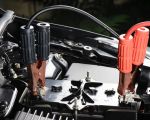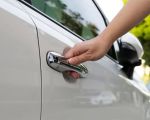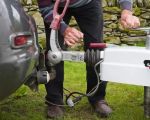- 1 - Understanding Engine Overheating
- 2 - Signs Your Car’s Engine is Overheating
- 3 - Immediate Actions to Take if Your Engine Overheats
- 4 - Preventing Engine Overheating in the Future
- 5 - Getting Professional Help for Engine Overheating
1. Understanding Engine Overheating
Engine overheating is one of the most common and potentially damaging problems a vehicle can face. It occurs when the engine temperature rises beyond the normal operating range, often due to a malfunction in the cooling system. This can happen for several reasons, including low coolant levels, a broken thermostat, or a failing radiator fan. When your engine overheats, it can lead to significant internal damage, such as warped cylinder heads, a blown head gasket, or in the worst case, complete engine failure.
To better understand the problem, it's important to know how your car’s cooling system works. The system uses a mixture of coolant and water to absorb heat from the engine, circulating it through the radiator where the heat is dissipated. If any part of this system fails, such as a hose leak or a malfunctioning water pump, the engine can begin to overheat. Knowing the common causes of engine overheating can help you recognize and address issues before they escalate into expensive repairs.

Pick Your Part - Help Yourself
1232 Blinn Ave, Wilmington, CA 90744, USA
2. Signs Your Car’s Engine is Overheating
Recognizing the signs of an overheating engine is crucial to avoiding damage and taking action before it’s too late. Here are some of the most common indicators:
- Warning Light: Most modern cars are equipped with an engine temperature warning light on the dashboard. If this light comes on, it indicates that your engine’s temperature is too high and you should take immediate action.
- Steam or Smoke: If you see steam or smoke rising from under the hood, it’s a clear sign that your engine is overheating. This happens when coolant begins to boil or leak out of the cooling system.
- Rough Engine Performance: An overheating engine may cause the car to run rough or misfire. The vehicle may feel sluggish, or you may notice a loss of power as the engine struggles to cool itself.
- Hot Air from Vents: If you notice that the air blowing from your car's air conditioning vents suddenly becomes hot or warm, this could indicate that the engine is too hot and the AC system is being affected.
- Unusual Smells: A sweet, burning smell could be the result of leaking coolant. This is another sign that your engine may be overheating.
3. Immediate Actions to Take if Your Engine Overheats
If you find yourself in a situation where your car’s engine is overheating, there are several critical steps you should take to prevent further damage:
- Pull Over Safely: The first thing you should do is pull over to the side of the road as soon as possible. Continuing to drive with an overheating engine can cause permanent damage, such as a cracked engine block or a blown head gasket.
- Turn Off the Engine: Once you’ve safely stopped, turn off the engine immediately. This allows the engine to cool down and prevents additional strain on the components.
- Wait for the Engine to Cool: Allow the engine to cool for at least 15 to 30 minutes before attempting any repairs or inspections. Opening the hood too early can result in burns from hot steam or coolant.
- Check the Coolant Level: If you have the knowledge and the tools, check the coolant level once the engine has cooled. Low coolant is one of the most common causes of overheating. If the coolant level is low, you may be able to add more coolant (preferably the right type) to prevent further overheating.
- Check for Leaks: Inspect the radiator, hoses, and the area around the engine for any visible signs of coolant leaks. If you see any, it may be necessary to call for roadside assistance or emergency towing services.
- Turn on the Heater: If you’re unable to stop immediately and need to keep driving for a short period, turning on the car's heater to full blast can help draw heat away from the engine and reduce the temperature temporarily. However, this should only be done in extreme situations.
4. Preventing Engine Overheating in the Future
Once you've dealt with an overheated engine, it’s important to take steps to prevent it from happening again. Regular maintenance and taking care of your car’s cooling system can go a long way in preventing future issues:
- Check Coolant Levels Regularly: Make it a habit to check the coolant levels in your car’s reservoir regularly. Keeping the coolant at the proper level can prevent overheating caused by a lack of coolant.
- Replace Worn Out Hoses: Inspect the hoses that carry coolant to ensure they aren’t cracked or leaking. Replacing worn-out hoses before they break can save you from dealing with an overheating engine.
- Replace the Thermostat: The thermostat controls the flow of coolant through the engine. If it malfunctions, it can cause overheating. Regularly replacing the thermostat as part of your car's maintenance schedule can prevent issues.
- Keep the Radiator Clean: Over time, dirt and debris can clog the radiator and reduce its efficiency. Regularly cleaning the radiator and ensuring there are no blockages can help it work efficiently and prevent overheating.
- Monitor for Leaks: Check for coolant leaks periodically. A small leak can gradually lead to overheating if left unnoticed.
5. Getting Professional Help for Engine Overheating
If you're unable to resolve the overheating issue on your own or if the engine continues to overheat after taking preventive measures, it’s time to call in the professionals. A certified mechanic can diagnose and fix the underlying problem, whether it’s a malfunctioning water pump, a damaged radiator, or an issue with the thermostat. It’s always better to address these issues before they escalate into more serious problems that could leave you stranded.
In cases where you're unable to drive your vehicle safely, or if the engine is severely damaged, don’t hesitate to call a towing service. Rescue & Towing offers reliable towing services and can transport your vehicle to the nearest repair shop, ensuring your car gets the help it needs as quickly as possible.
In conclusion, engine overheating is a serious issue that requires immediate attention to avoid significant damage. By understanding the causes and signs of overheating, taking quick action, and maintaining your car’s cooling system, you can protect your vehicle from long-term harm. If you ever find yourself in an emergency situation, remember that professional help, including emergency towing services, is available to get you back on the road safely.





























